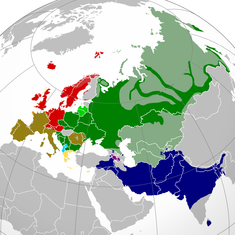Featured Quizzes
User Quizzes
Create Quiz
Data and Charts
Badges and Games
About JetPunk
JetPunk Shop
Dark Mode

Proto-Indo-European doublets in Modern English adjectives
A doublet is a set of two words in the same language which are distinct but ultimately come from the same etymological root - for example, the words 'fear' (from Old English) and 'peril' (from Latin) which both ultimately derive from the same Proto-Indo-European root.
In the below quiz, find the Germanic/Old English-derived doublet for each Latin-derived word given. The etymologically-related parts of the word have been put in bold.
Note: only the parts of the clue words in bold are etymologically related to the answer words
Rate:
Last updated: May 13, 2021
You have not attempted this quiz yet.
More quiz info >>
| First submitted | May 13, 2021 |
| Times taken | 41 |
| Average score | 14.3% | Report this quiz | Report |
4:00
Enter answer here
0
/ 21 guessed
Time Used
00:00
Best Time
00:00
The quiz is paused. You have remaining.
Scoring
You scored / = %
This beats or equals
% of test takers
also scored 100%
The average score is
Your high score is
Your fastest time is
Keep scrolling down for answers and more stats ...
|
No comments yet
New and Popular
Save Your Progress
Copyright H Brothers Inc, 2008–2024
Contact Us | Go To Top | View Mobile Site
